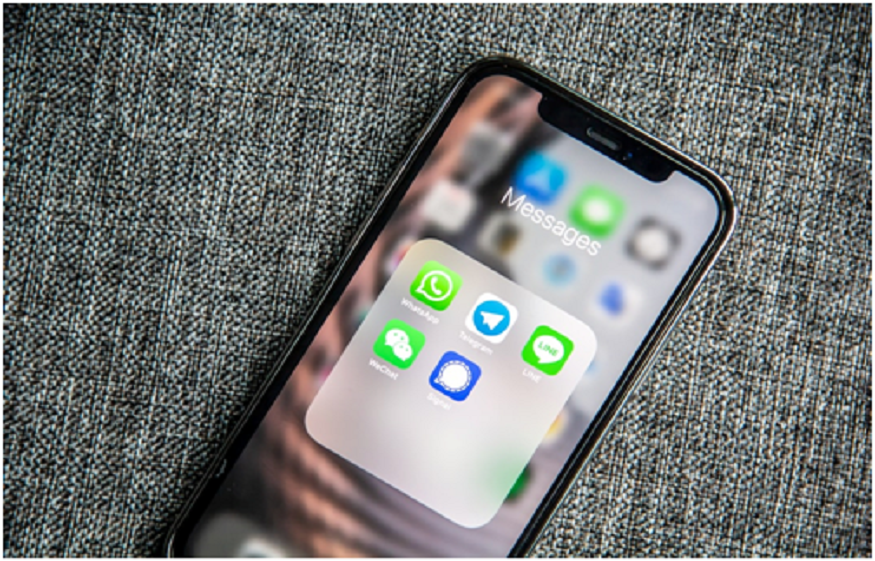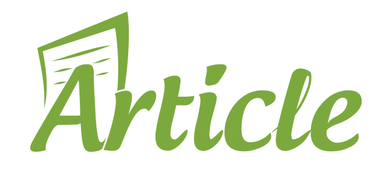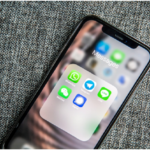
How Bulk SMS is Reshaping Healthcare Communication: 7 Key Applications
As digital transformation sweeps through the healthcare landscape, bulk SMS has emerged as a game-changing tool for patient engagement, care coordination, and public health outreach. From personalised appointment reminders to urgent disease outbreak alerts, SMS services are enabling healthcare providers to communicate with patients and communities more effectively than ever before.
In this article, we’ll explore seven critical areas where bulk SMS is making a tangible impact in healthcare, supported by industry statistics and real-world case studies. We’ll also examine how SMS services API and integrations with platforms like Microsoft Teams are further streamlining healthcare messaging workflows.
1. Appointment Reminders: Reducing No-Shows and Improving Efficiency
Missed appointments are a perennial challenge in healthcare, leading to lost revenue, reduced clinical efficiency, and poorer health outcomes. Bulk SMS has proven to be a powerful antidote:
- SMS reminders can reduce no-show rates by up to 38%, with some studies citing a 26% reduction.
- A clinic using SMS reminders saw no-shows drop from 18% to 11%, directly boosting revenue and staff productivity.
- 76% of patients globally want text reminders for appointments.
How It Works
- Appointment scheduling systems are integrated with an SMS services API.
- Automated reminders are triggered at predefined intervals before the appointment.
- Patients can confirm, reschedule, or cancel via SMS replies.
2. Medication Adherence Alerts: Supporting Treatment Compliance
Ensuring patients take their medications as prescribed is critical for managing chronic conditions and preventing hospital readmissions. Bulk SMS provides a simple, effective way to send dosage reminders and track adherence:
- 69% of patients are open to receiving medication reminders via SMS.
- Daily or weekly SMS reminders can significantly improve medication compliance and health outcomes.
- In a case study, hospitals using SMS reminders for HIV/AIDS and tuberculosis patients in India and Africa reported higher adherence rates.
How It Works
- Electronic Health Record (EHR) systems are integrated with an SMS services API.
- Automated SMS alerts are sent based on the patient’s prescription schedule.
- Patients can confirm dosage intake or report side effects via two-way SMS.
3. Diagnostic Test Notifications: Timely Updates, Less Anxiety
Waiting for test results can be a stressful experience for patients. Bulk SMS allows healthcare providers to promptly notify patients when their reports are ready, reducing anxiety and follow-up calls:
- Providers can send secure links to reports or direct notifications via SMS.
- This enhances transparency and trust while reducing call center loads.
- Diagnostic labs across India are leveraging SMS for faster test result delivery.
How It Works
- Laboratory information systems (LIS) are integrated with an SMS services API.
- When test results are finalised, an automated SMS is triggered to the patient.
- The SMS may contain a secure link to access the report or a notification to contact the provider.
4. Preventive Health Campaigns: Promoting Wellness at Scale
SMS is a highly effective channel for disseminating health education, wellness tips, and disease prevention advice to large populations:
- Bulk SMS enables instant broadcasting of health content to thousands or millions of recipients.
- Campaigns can be localised with regional language messaging for better resonance.
- The Indian government has used SMS extensively for immunisation drives and disease awareness programs.
How It Works
- Health promotion content is crafted into short, actionable SMS messages.
- Subscriber lists are segmented based on demographics, location, or health conditions.
- Mass SMS campaigns are scheduled and launched through an SMS services API.
5. Public Health Alerts: Rapid Response to Outbreaks and Emergencies
In public health emergencies like disease outbreaks or natural disasters, timely communication is vital. Bulk SMS allows health authorities to quickly disseminate critical information and guidance to affected populations:
- SMS can be used to broadcast symptoms, precautions, helpline numbers, and evacuation instructions.
- During the COVID-19 pandemic, Indian states used SMS extensively for updates, self-assessment tools, and vaccination alerts.
- The scalability of bulk SMS is invaluable for reaching millions of citizens rapidly.
How It Works
- Health authorities draft clear, concise emergency SMS alerts.
- Geo-targeted subscriber lists are prepared based on the affected areas.
- Mass SMS broadcasts are triggered through government-operated SMS services API platforms.
6. Two-Way Patient Communication: Efficient Queries and Feedback
Beyond one-way alerts, bulk SMS also enables interactive two-way communication between patients and healthcare providers:
- Patients can send queries, request prescription refills, or provide feedback via SMS.
- Providers can respond with information, instructions, or follow-up questions.
- This improves patient satisfaction and care quality while reducing phone traffic.
How It Works
- An SMS services API is integrated with the provider’s patient engagement platform.
- Patients send inbound SMS messages to a designated short code or long code number.
- The messages are automatically routed to the appropriate department or staff for response.
7. Payment Reminders and Collections: Streamlining Financial Workflows
Bulk SMS is also proving valuable for optimising healthcare financial processes, particularly payment reminders and collections:
- SMS payment reminders can significantly improve collection rates and cash flow.
- Secure payment links within SMS allow patients to settle bills quickly and easily.
- This reduces administrative overhead and accelerates revenue realisation.
How It Works
- The billing system is integrated with an SMS services API.
- Payment reminders are automatically triggered based on predefined schedules or overdue thresholds.
- The SMS contains a secure payment link directing the patient to a mobile-friendly portal.
The Pivotal Role of SMS API and Operator Connect for Microsoft Teams
As healthcare organisations adopt unified communication platforms like Microsoft Teams, the ability to seamlessly integrate bulk SMS capabilities is becoming increasingly important. This is where SMS services APIs and Operator Connect for MS Teams come into play:
- SMS services API allows healthcare software systems (EHR, patient portals, billing) to programmatically send and receive SMS messages at scale.
- Operator Connect enables telecom operators to provide SMS connectivity directly within the Microsoft Teams interface.
- Together, these solutions allow healthcare staff to manage all patient SMS interactions from a single collaborative workspace.
Use Case: Care Coordination in MS Teams
Consider a scenario where a hospital has integrated its EHR with an SMS services API and enabled Operator Connect for MS Teams:
- A nurse schedules a follow-up appointment for a patient and sends an SMS reminder, all from within Teams.
- The patient responds via SMS with a query about pre-appointment instructions.
- The SMS is routed to the appropriate Teams channel, where the nurse can promptly respond.
- After the appointment, the billing department sends an SMS payment reminder, again from Teams.
This seamless integration of SMS services API and Operator Connect within Microsoft Teams streamlines multiple workflows, improves collaboration, and provides a unified audit trail for compliance and quality assurance.
Embracing Bulk SMS for a Healthier Future
As the examples and data in this article illustrate, bulk SMS is a vital tool in the modern healthcare communication arsenal. From enhancing patient engagement and medication adherence to enabling rapid public health response, SMS services are driving meaningful improvements in care delivery and population health outcomes.
To fully harness the potential of bulk SMS, healthcare providers must partner with reliable, HIPAA-compliant SMS API vendors who can seamlessly integrate with their existing systems and workflows. Airtel’s SMS API is one such solution, offering enterprise-grade performance, advanced analytics, and end-to-end encryption—empowering healthcare organisations to revolutionise patient engagement with confidence and ease.














